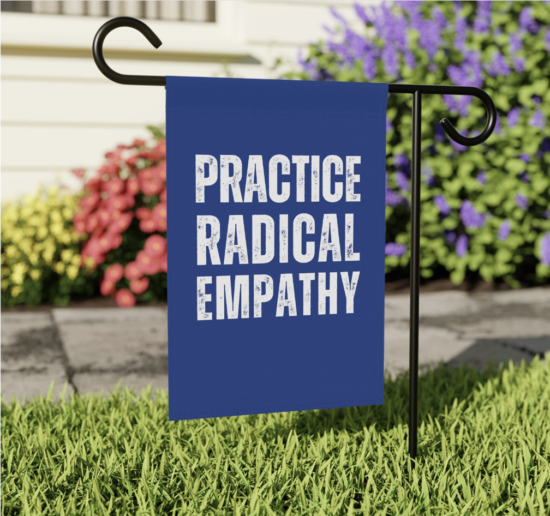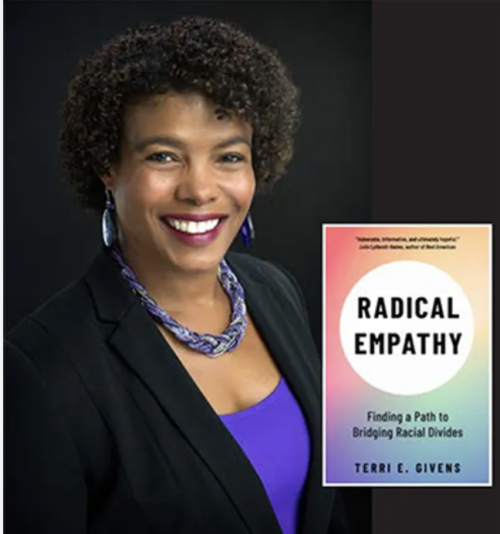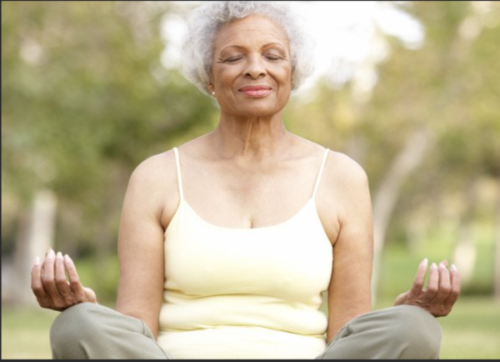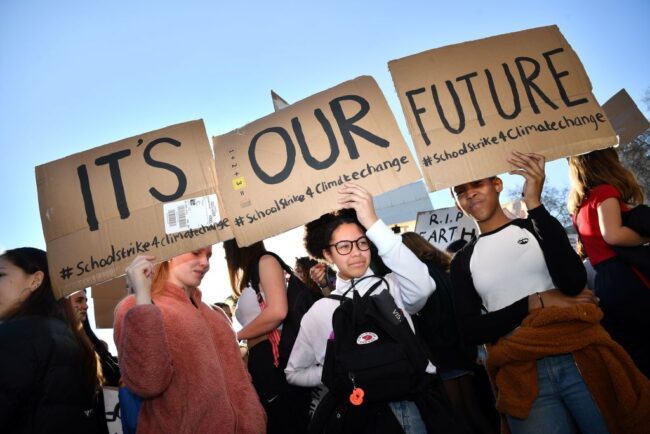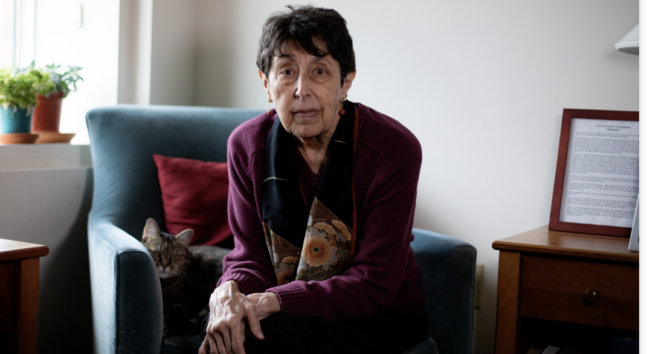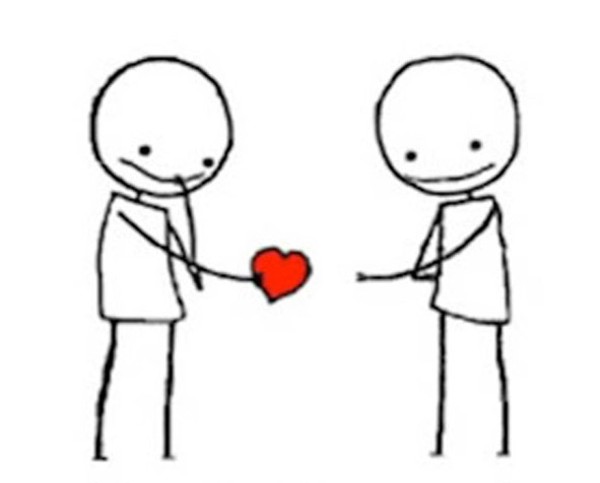I spent the Labor Day weekend at my country retreat in midcoast Maine where I own a cottage on a quiet country road sprinkled with modest homes. I make a practice of taking daily walks on this road, which I like to think of as my walking meditations.
On Saturday I stopped in my tracks after noticing a flag at a home’s entrance. The words on the flag read “Practice Radical Empathy.” The home’s owner was gardening, so I called out to him, “I love your flag.” In response, he smiled, commenting, “It’s how I try to live my life.”
His words stayed with me. I couldn’t stop thinking about my own life, realizing I could use a radical empathy practice. As hard as I try to be nonjudgmental, I get triggered by those on the far right or hotheads in my own family.
Wanting to better understand radical empathy, I turned to the internet where I learned that, “radical empathy” was coined by Terri Givens, a Black political science professor, so upset by the brutal killing of George Floyd that she was moved to write the book, Radical Empathy: Finding a Path to Bridging Racial Divides, where she makes the case for radical empathy to heal our racial divide.
Isabelle Wilkerson, the bestselling author of Caste, offers a clear definition of radical empathy:
Empathy is commonly viewed as putting yourself in someone else’s shoes and imagining how you would feel. That could be seen as a start, but that is little more than role-playing, and it is not enough in the ruptured world that we live in. Radical empathy, on the other hand, means putting in the work to educate oneself and to listen with a humble heart to understand another’s experience from their perspective, not as you imagine you would feel.”
Terri Givens recommends a radical empathy practice, where you start by practicing empathy on yourself.
This not only means finding compassion for yourself but digging into your biases and endeavoring to be more vulnerable to deepen your relationships. I was reminded of my tendency to form judgements of those with whom I differ. I need to practice compassionate listening rather than jump in with my opinions. My wise self reminds me, “You’re not always right. Be open to other viewpoints.”
I can start by patiently listening to family members and friends with whom I clash, like those who challenge my progressive politics, or not spring into a defensive posture when my adult sons criticize my parenting.
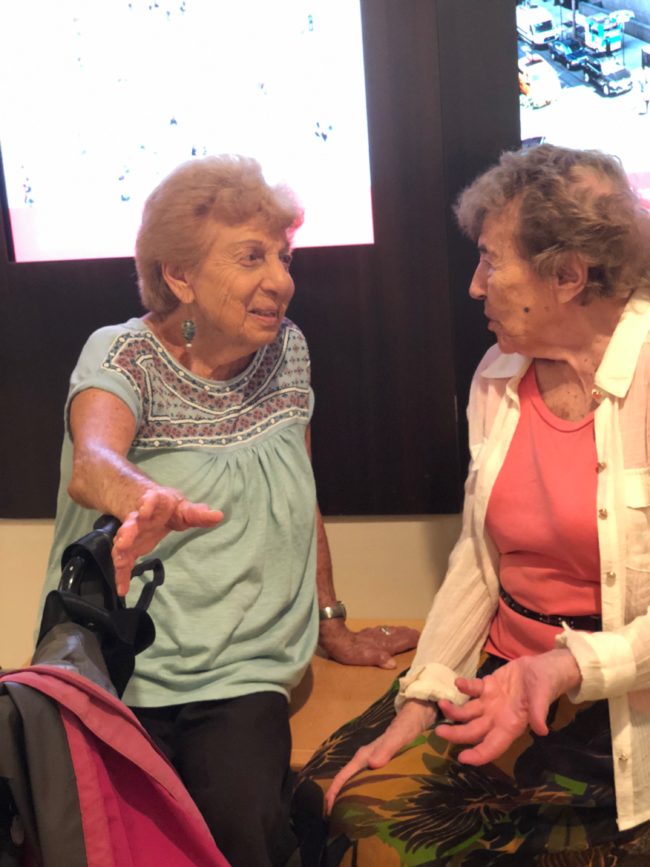
Bea and Randi, two old friends who pride themselves on being open and vulnerable with one another: keys to radical empathy
For both Givens and Wilkerson, our best hope for healing our fractured communities lies in practicing radical empathy. We have to move beyond deepening our understanding with those with whom we differ and take our radical empathy perspective towards building a unified nation.
As elders, we can practice radical empathy by listening with open hearts to the new generation of teens and young adults who feel disenfranchised: depressed over huge student loans, unaffordable housing, an inhospitable climate, and a dwindling job market. We can’t abandon them.
Dr. Judith Herman, credited with groundbreaking work on understanding personal trauma contends that, as a society, we are experiencing collective trauma where so many feel disconnected and not heard. These lost souls are bait for a Fascist takeover. Herman insists what will save us is a model where people feel reconnected to their communities. When they no longer feel isolated, healing begins.
Chris Hedges, the Pulitzer Prize winning journalist, stresses the importance of communities in real time over virtual communities.
Let’s commit to a two-prong approach where we initiate contact with our immediate neighbors along with our national and global neighbors by joining organizations addressing racism, abortion rights, global warming and world peace. I long to live in such a world. We can make it happen if we take a pledge to commit to radical empathy. I have a vision of homes across the country displaying flags that read, “Practice Radical Empathy.”
“
